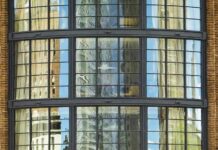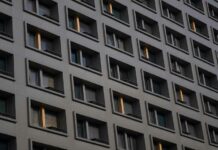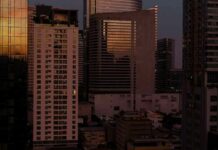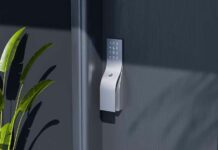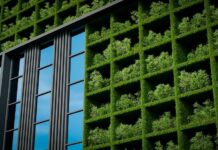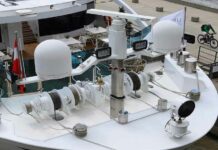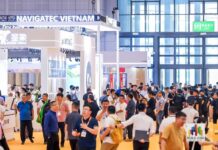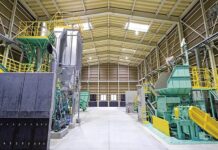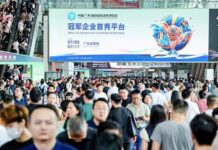DOMOTEX – the world’s leading tradeshow for carpets and floor coverings – returned as the industry’s international trends showcase. This year’s theme of “CREATE’N‘CONNECT” put the spotlight on digitization and creative connectivity across all aspects of floor design, forming a leitmotif for the entire event. The “Framing Trends” special showcase featured stunning presentations, innovative product displays and an exciting supporting program, creating a lively hot spot that was particularly appreciated by visitors with a lifestyle focus.
“The floor sets the stage for any interior,” says internationally renowned designer Sebastian Herkner, highlighting the vital connective function of carpets and floor coverings within the overall design concept. “Along with walls, floors define the context and basis of interior design. The choice of floor material affects how we live and communicate in the resulting interior space.” As a presenter at the Framing Trends speaker’s forum, Herkner addressed the lead theme of connectivity operating at the interfaces of architecture, interior design and design.
Framing Trends – a special showcase at DOMOTEX 2019 devoted to all aspects of the CREATE’N’CONNECT lead theme – served as the creative hot spot for the overall event. It provided the main forum for presentations and debates on the megatrend of connectivity and was a standout attraction for architects, interior designers and influencers, among others. It consisted of the following three modules: “Flooring Spaces”, devoted to presentations of innovative products; “NuThinkers”, featuring a selection of university design projects; and the highly original art installations featured in the “Art & Interaction” space.
Flooring Spaces – presentations on the CREATE’N’CONNECT lead theme
One of the central attractions at DOMOTEX 2019 consisted of the the “Wood Lifecycle” flooring space, a project created and designed by Total Tool Milano, featuring a “lifecycle” of wood in seven distinct steps – from the tree growing in the forest to the recycled product which completes and closes the cycle at the other end. Every point on the cycle of this connective display featured products from a leading Italian company. A special “connectivity wheel” from the Schmidhuber company, made up of colored glass facets, invited tradeshow visitors to enter the wheel and set it in motion with their footsteps, thus generating multi-colored light reflections on the surrounding floor coverings provided by Carpet Concept, for a unique visitor experience. This technique of highlighting the connections and interactions between light and materials also promoted social connections and interactions in the form of selfies. Again within the context of the lead theme, Fletco Carpets, in partnership with its customers, created a special floor of digitally printed carpet tiles and a carpet mat. Most of the floor surface was printed with a precisely defined pattern to form a clear contrast with the pixelated outer zone.
This was continued on the walls, illustrating the almost limitless possibilities of digital printing technology for the development of brand identities, exemplified by creatively coordinated wall and floor products. In another exhibition space, Visionme, a young, Hannover-based company, presented “IUNCO”, a package of innovative visualization technologies and distribution channels for the floor covering industry. The “Virtual Showroom” offered a comprehensive2 display of virtual reality technology, while the “Product Catalogue” devoted itself to augmented reality and AI. An AI smartphone app enabled DOMOTEX attendees to substitute virtual floors for the real thing and experience the visual and spatial effects. The multi-platform IUNCO visualization technology allows the user to emotively connect real and virtual worlds.
Creative interaction and environmentally focused design projects
Another outstanding attraction involved audience-participation design projects offered by the NuThinkers from the University of Wismar. In “A Match!”, two physically separated individuals attempted to swing in sync. The parallel swinging movements were displayed in the form of superimposed curves on a video display. The participants were able to send each other snapshots of this using an app, thereby connecting with the outside world. The second student project, “Connect it3”, was based on triangular modules covered with glued-on carpet materials which, over the four days of the fair, visitors were invited to reconstitute into ever-changing three-dimensional floor shapes.
In the “Art & Interaction” space, the artist Rena Detrixhe laid reddish sand taken from the American state of Oklahoma as a temporary carpet. To create this “Red Dirt Rug”, she began by sifting the soil into a fine sludge, which she then smoothed out into an even layer. At the corners, she used parts of old shoe soles to stamp geometric patterns and ornaments onto the surface. The artist’s aim was to draw attention to the massive environmental impact of mineral extraction on the landscapes of her homeland. The Portuguese artist Vanessa Barragão used her frame to display handmade underwater worlds created from a highly original network of recycled materials. The work portrays a coral reef, contrasting bright colors which stand for “bygone days” with a colorless “extinct” scenery representing what is happening now. Created using techniques such as crochet, macramé and knitting, her works advocate a more ecofriendly form of textile production to prevent ocean warming.
Connected floor design as a source of inspiration for exhibitors
The lead theme of connectivity and the digitization trend were emphasized in many of the products and services from innovative manufacturers and brands, linked closely to themes like individualization, naturalness, and sustainability.
Specialized visualization software and data management solutions for the floor covering industry were the main focus of the joint exhibit by ESIGN Software and active online. ESIGN’s modular “Interior Studio Platform 3.5” exhibited the prototype of its new AI tool, while active online presented AR and VR tools and new functions of “materialo” for the automated transfer of product data for websites or online shops. Leap Tools from Toronto displayed its “RoomVo” visualization technology, a tool which allows users to upload their interior space photographs directly to the website of a manufacturer or supplier – no app required – and simulate the look of selected carpet tiles, wood planks or design floor coverings.
Personalized products for any flooring need
Along with an increasing reliance on digital solutions, there is a growing trend towards individualization in numerous product segments, be it in the form of carpeting designed with personally chosen patterns and unusual graphic effects through the use of digital printing (“Unique Territoire” by Balsan), or a series of products expanded through the use of digitally printed loop designs in brilliant color and amazingly high resolution (Girloon, “Pure”). The carpet tiles in the Pure collection are self-adhesive, with an acoustically active reverse side. The “Africa” collection of Paulig Teppichweberei consisted of handcrafted carpets and seat cushions made from spun and milled New Zealand sheep’s wool, with individualized color options. With a total of 24 color oil primers in its “Color Collection”, Pallmann offers ample scope for the color design of parquet floors. The southern Tirol-based firm Karl Pedross has developed an innovative technology for digital direct printing on profile sections and skirting boards, reproducing the look and feel of protected timber species just as accurately and convincingly as personalized designs. Individual parquet floors in unusual and original geometrical configurations, such as interweave patterns (Arbony, “Versailles”) or customized design forms, can be combined into wood floors of original design and superior quality.
From sustainability to emulating nature
The emulation of nature and sustainability were emphasized across a wide variety of product categories. Examples included sustainably produced wool carpets with decorative threedimensional structures (Tisca-Textil “Olbia”, Best Wool Carpets “Crayons”) and woven carpets made from high-quality, breathing natural fibers (Franz Reinkemeier, “Wohnidee-Kollektion”) or tufted carpet backing made of recycled polyester, which are free of chemical bonding agents and also enhance room acoustics (Freudenberg Performance Materials, “Sustainable Backing”).
To create its highly original stand design, Freudenberg formed a creative partnership with one of its customers to come up with a natural-looking carpet floor printed with moss and grass, with sustainably produced recyclable backing. The Swiss firm LI & CO premiered its eco-friendly “Lipur” design, made without the use of PVC, chlorine, plasticizers and phthalates, and recyclable as well. The range of goods on display also included products with a natural look and feel such as “Cork Wood Wise” from Amorim. Also on show at DOMOTEX 2019 were a wide range of leather carpets, such as the “Hair on Leather” variety (Esbeco, Essgee Leather Goods, JAVI Home) or looped three-dimensional surfaces, as in the “Nubuk” collection from Suedser Tekstil.
Latest innovations next to traditional flooring
The emulation of nature also featured in the exhibition segment of quality parquet and wood floors. There was considerable interest in vintage floors with a history, such as reconditioned railway sleepers or beams from demolished buildings (Flamingo Parket “Raftwood”, Losan, “Jungle Oak”). Also on display were a generous range of artificially weathered or handcrafted “used look” wooden surfaces (Fetim, Heywood Vloeren, Cora Domenico). The three-layered “Carcassonne” parquet floor from Lamett consisted of wide floorboards, with an authentic living surface structure. Visible knots and open cracks were deliberately included as design features.
Latest-generation luxury vinyl tiles were displayed by LG Hausys: The Korean firm’s “Decorigid” collection falls into the category of design floors and surfaces with a natural stone or wood décor that can be laid using a “click” system. Since they include a rigid board layer, these tiles are suitable for hard and problematic bases. The Swedish firm Bjelin presented its new collection, “Nadura Tiles”. These tiles are based on a composite of wood fibers, bonding agents, particles and color pigments, hardened at high temperature and high pressure, formed into thin layers, and fused with a core material. Their ceramic surface makes the tile particularly
strong. In the laminated floors segment, Falquon exhibited “The Floor” – a waterproof design floor with excellent shape-holding characteristics, featuring an SPC backing slab with no plasticizer inside, and a wide variety of surfaces.
Inventive, time-saving and installer-friendly
Highlights among the application and installation techniques on show included labor-saving and intelligent products. “Uzin NC 111 BiColor” is a plaster compound for the preparation of smooth base surfaces provided by Uzin Utz; the compound changes color from bright green to salmon pink when ready for application. SELIT Dämmtechnik displayed its new “Selit Style” product – laser-printed strips that can be matched with the floor using an innovative printing process.
The Ô MUR system from the French firm of the same name allows uniform wall and floor design. With this wall installation system, parquet flooring with a click connection can be applied not only horizontally, but also to the walls. Stäubli, a developer of mechatronic solutions for looms, displayed a wide range of “used look” carpet patterns with realistic wear marks, woven on ALPHA 500 series carpet looms.
Brilliant effects, the used look and geometric carpets
Displays included metallic yarns in finely serrated patterns or expansive structures, primarily for resilient and textile floor surfaces (Hellsten Flooring, “Tuuli Salsa Metallic”, Tapibel, the extended “Metal-X-Urban” collection). Also on show were products with a more understated sheen, for example in superior quality carpets such as “Ghom Copper” from Hossein Rezvani, “Reflections” from Art Resources and “Argent” from Choudhary Exports. New wool carpet collections from Creative Matters such as “Veil” featured silver-gray tones. Gray was featured as a trend color for superior quality products at numerous stands. “Super Smooth on Red Denim”
by Rug Star attracted considerable attention with its tufted rayon surface, with the red cotton material of the carpet base showing through at an open point in the design. “Dazzie” from Saraswatii Global is a masterpiece of the knotter’s art, with a fine, irregular three-dimensional silk surface structure, particularly impressive in “Dark Grey”. Much in demand along with these examples of outstanding design was the equally exclusive “used look” in textile floor coverings, woven carpets and hand-woven carpets (De Poortere, Stefany Home & Living, Hossein Rezvani).
Wool and silk handcrafted carpets and superior-quality woven carpets with colored geometrical or graphic patterns and strong black-white contrasts also had strong appeal (Claire Gaudion, Osta Carpets, Jaipur Rugs, Hanse Home Collection, Zollanvari). Flair Flooring displayed the results of its partnership with the Victoria & Albert Museum in London. The striking zigzag design of “Salon” is a magnified detail of an art deco carpet contained in the V&A collection. Prado Rugs, a manufacturer and exporter of machine-made carpets from Egypt, delighted trades how visitors with its high-quality wool carpets following the patented design principles of “BioGeometry”. According to this principle, geometric patterns with special circles, angles, and waveform patterns are thought to create harmonizing and therapeutic effects by activating especially positive energies in the environment and our bodies.
Prizewinning exhibits in the Carpet Design Awards 2019
On Saturday evening came the much-anticipated announcement of the winners of the Carpet Design Awards 2019 given in recognition of outstanding combinations of quality, design and innovation. The Best Studio Artist Design award went to “Create & Connect: The Chameleon Carpet” from the Beate von Harten studio. The jury praised “the idea of literally getting lost in the multiple fabric layers.” Edelgrund won two awards, for “Bijar” (Best Flatweave Design) and Best Communication for its advertising campaign. Two awards also went to Wool & Silk (“Happiness” / Best Collection, and “Reggae” / Best Modern Design Deluxe). The winner of the
CDA for Best Modern Design Superior was “Spartan Plumage” by Zollanvari International. The Berlin trend label Rug Star was the winner in the Best Traditional-Modern Design category with “Balouch LightPink”. It also won the Best Interior Installation award, for its “Magnificent Old- Portland Style House”, a photo project realized in the USA. The jury experts stated that “the new and old world come together in this exciting interior interpretation,” viewing it as an outstanding example of how carpets can transform an interior.
Deutsche Messe AG
As one of the world’s foremost organizers of capital goods trade fairs, Deutsche Messe (Hannover, Germany) stages a rich array of events at venues in Germany and around the globe. With 2017 revenue of 356 million euros, Deutsche Messe ranks among Germany’s top five tradeshow producers. The company’s portfolio features such world-class events as (in alphabetical order): CeMAT (intralogistics and supply chain management), didacta (education), DOMOTEX (carpets and other floor coverings), HANNOVER MESSE (industrial technology), INTERSCHUTZ (fire prevention, disaster relief and safety & security), LABVOLUTION (lab
technology) and LIGNA (woodworking and wood processing tools, equipment and machinery). Deutsche Messe also stages trade fairs at other German venues, for example parts2clean (industrial parts cleaning) and SurfaceTechnology (surface treatment). The company also regularly hosts a number of internationally renowned events by third parties, among which are AGRITECHNICA (agricultural machinery) and EuroTier (animal production), both of which are staged by the German Agricultural Society (DLG), EMO (machine tools; staged by the German Machine Tool Builders’ Association, VDW), EuroBLECH (sheet metal working; staged by
MackBrooks) and IAA Commercial Vehicles (transport, logistics and mobility; staged by the German Association of the Automotive Industry, VDA). Deutsche Messe’s portfolio also includes trade fairs in Australia, Canada, China, Indonesia, Italy, Mexico, Russia, Singapore, Thailand, Turkey and the USA. Among the sectors addressed at these overseas events are Automotive, ICT & Digital Business, Manufacturing & Processing Industries, Energy & Logistics and Metal Processing. With more than1,200 employees and a network of 58 sales partners, Deutsche Messe is present in more than100 countries.







